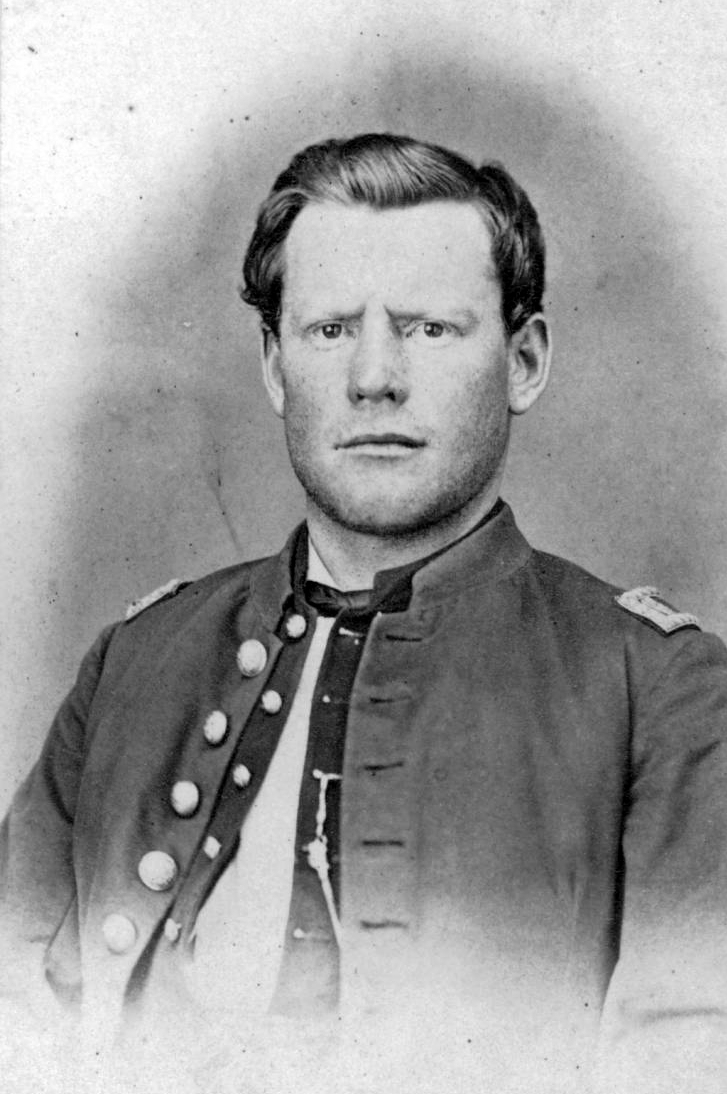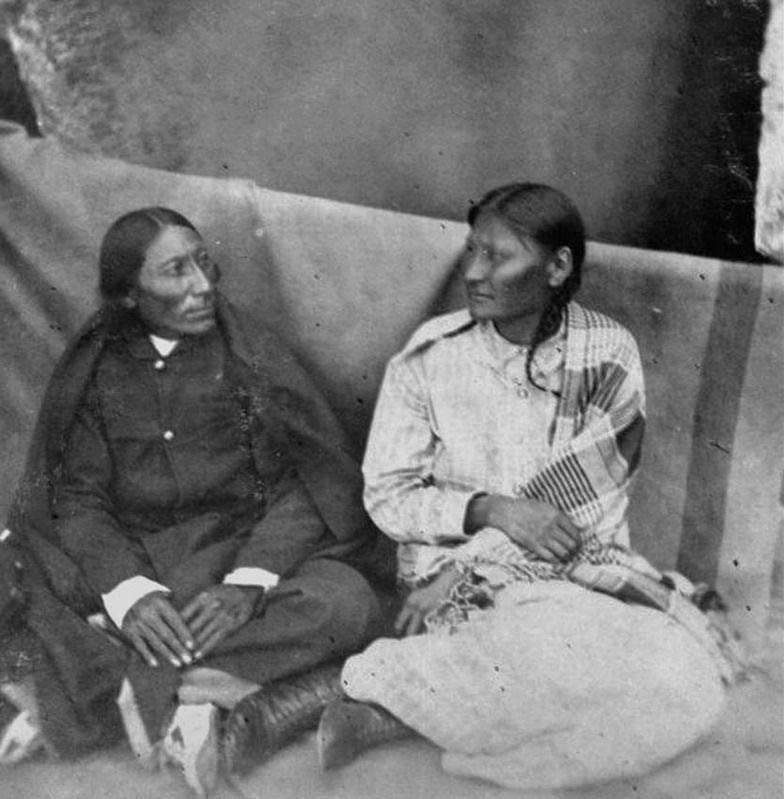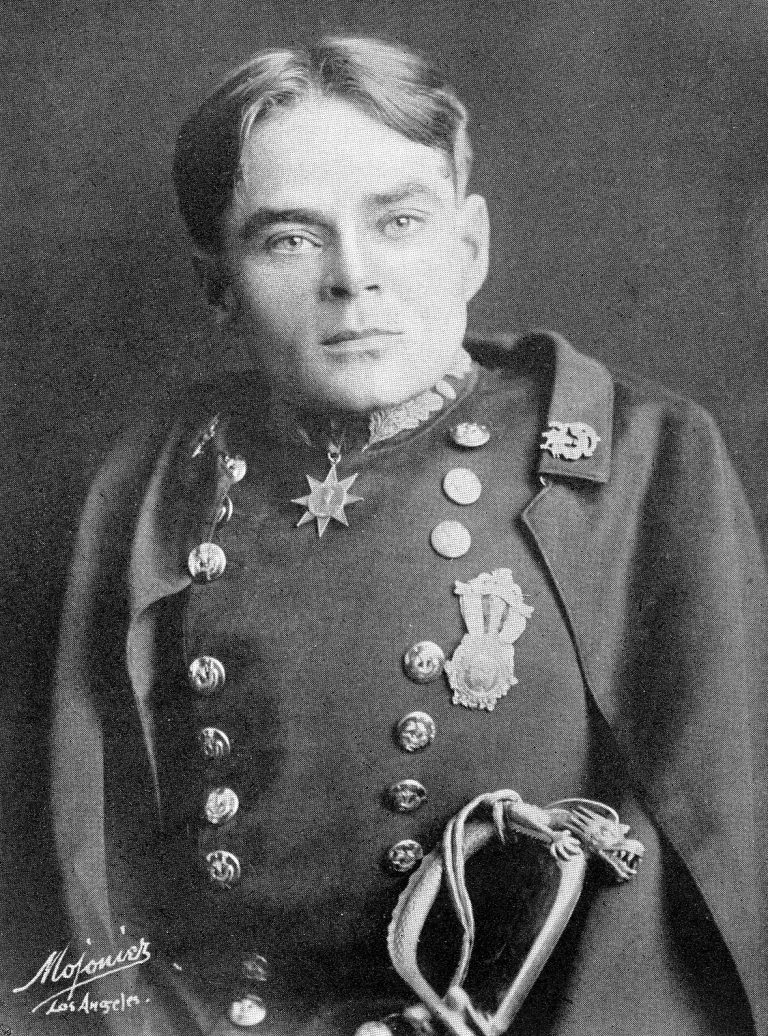78th Issue: Silas Soule, Mochi, and Homer Lea
I found a post on social media about the My Lai Massacre, and I was reading about the guy who was the whistle blower for that but this isn’t about that guy. Under related pages, the name Silas Soule came up and I had no idea who he was so that’s where I’ll start.
Silas Soule was born in 1838 in Maine. His family was descended from the Mayflower passengers, and they were all abolitionists. He was known to be friendly and good natured, and loved to play jokes and tell stories. His family became interested to settle what is now Kansas and make it a Union state (instead of a Confederate one) so in 1854 they moved there and became the town of Lawrence’s founding family. Silas’s dad made his house a stop on the underground railroad, and as a teen, Silas started helping his dad by escorting escaped slaves from Missouri to the North where they could be free.

In the 1850s during the period of “Bleeding Kansas” when people were fighting about whether Kansas would be a slave state or a free state, Silas and some friends went and freed a man who was in a Missouri jailhouse for ‘abducting slaves’, convincing the jail keeper to let him go. In 1860, Silas heard about John Brown’s raid on Harper’s Ferry. He went down to Virginia where John Brown’s followers, Albert and Aaron, were being held, and offered to help them escape. He had already done it once before, after all.
Silas pretended to be a drunken Irishman and got himself arrested. He then was able to charm the jailer to let him out of his cell, when he went to visit Albert and Aaron. Unfortunately, both of them said they wanted to be martyrs for the cause and were hanged that March. Silas went on to Boston after that, making friends with Walt Whitman and various abolitionists.
Silas was bored, and went to Colorado where he dug for gold. When the Civil War started, he joined up and fought in New Mexico and Colorado. What Silas is most known for happened in 1864. His men were ordered to attach an encampment of Southern Cheyenne, who were known to be peaceful, in what became known as the Sand Creek Massacre. Silas told other officers that “any man who would take part in [such] murders, knowing the circumstances as we did, was a low lived cowardly son of a bitch.” His company of soldiers did not enter the settlement and did not participate in the killings but they did watch what happened. There was nationwide outrage about what happened and Silas and his men’s testimonies contributed to Congress refusing to let the US Army wage a war against the Plains Indians.
Silas was a charming guy, as you can tell. It was said he could "slither under the thickest skin of pro-slavery or Union supporter alike, with his sharp tongue, cynical nature and charming wit”. In 1865 he married Hersa Coberly, but they were only together for less than a month before he was killed. His wife married again to a man named Alfred Lea, and their son was named Homer Lea. Remember that name, I’ll come back to Homer.
Two months after Silas testified about the Sand Creed Massacre, he was on duty as a marshal in Denver when he heard gunshots. He went to investigate and found Charles Squier who pointed a gun at him. Silas shot him, wounding him in the arm, but then Charles shot him in the face. He died almost right away. Charles ran away and was caught and brought back to Denver, but the officer who captured him was found dead of a staged drug overdose, and then Charles fled to New York. He had an influential family, and was there for a while, but then fled to Central America, where his legs got crushed in a train accident and he died of gangrene four years later.
Silas was promoted to the rank of major at his funeral in recognition of his service. There is a marker for him at the Sand Creek Massacre National Historic Site. He was also recognized in Congress.
X
When I looked up the Sand Creek Massacre, I saw there was a whole article about a woman who was there named Mochi. She was a Southern Cheyenne woman who was at the Sand Creek Massacre. She was hanging out with her mother just doing normal things and then a soldier came in and shot her mother in the forehead, killing her right away. He tried to rape Mochi, so she shot and killed him with her grandfather’s rifle. She fled with other survivors and became a warrior for the next decade. She fought with her husband in various battles and was the only Native American woman to be held by the US Army as a prisoner of war. She was kept in Florida in captivity at a fort for several years, then released. She went home to Oklahoma and died in 1881.

Now back to Silas Soule, who if you remember, had a wife briefly who remarried after his death. Her son, Homer Lea, has his own Wikipedia page. Born in 1876, his mother sadly died when he was three years old. Homer was dropped as a baby, and was very small, under 5 feet and under 100lbs. He went to high school normally though, and wanted to go to West Point but couldn’t go because of his disabilities. He liked camping, and went with friends in the San Bernardino Mountains. He attended Stanford University, where he studied military history, politics, and Chinese history and culture.

When he was 23, during the Boxer Rebellion, Homer went to China and somehow convinced (I would say maybe he inherited Silas’s charm but they weren’t related so I have no idea if it was just easy to convince people of things back then?) Kang Youwei, former prime minister of China, to make him a lieutenant general and give him some soldiers. He did, and made it to Beijing just as it was being liberated from Boxers. He fled to Hong Kong after Kang fell, and then to Japan, where he met Sun Yat-sen. Sun Yat-Sen sent Homer to the United States to raise funds. He returned to China in 1904 to lead a part of the military again, but he was unsuccessful and his health failed, so he went back home.
In the United States, Homer instructed American soldiers how to train the Chinese Imperial Reform Army. He also wrote two books, predicting both the rise of a Japanese empire and the rise of a German Reich based on ethnic purity. When Sun Yat-sen made China a republic in 1911, he made Homer a general and chief of staff, but Homer had a stroke and had to go back to the United States again, where he died in California at the age of 35. In 1969, he and his wife’s ashes were re-interred in a cemetery in Taipei, Taiwan.
As always, thank you for reading, and let me know if you have any topics you’d like me to cover in the future.